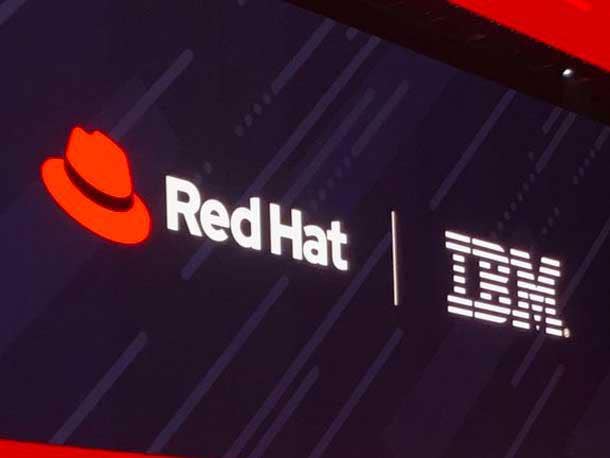Paul Cormier: Why Red Hat, IBM Have ‘Different Programs, Channels And Partners’
Red Hat has been an IBM subsidiary almost a year now, but when it comes to shaping the open source giant’s channel strategy, “I don’t think IBM really fits into the calculus there,” says Paul Cormier

Red Hat CEO Paul Cormier says he wants to make sure that partners understand that Red Hat and its parent IBM have completely different views of the channel.
“We have a very robust channel program with market development funds and we’re expanding that all the time,” said Cormier of his company’s channel commitment. “ I don’t think IBM really fits into the calculus there. They’re different programs. Channels and partners. It’s what made Red Hat. It’s what made the company.”
The Red Hat channel accounts for 80 percent of it annual sales. Armonk, N.Y.-based IBM, meanwhile, has seen its percentage of annual sales from its channel gradually decline over the last decade. Five years ago, IBM’s then CEO Ginni Rometty said that IBM partners accounted for only about 20 percent of IBM’s annual sales at that time.
Cormier told CRN that Red Hat maintains its own autonomous channel program. “That’s up to us,” he told CRN of the company’s channel strategy. “I don’t want anyone to get confused. We have our channel partners; IBM has their channel partners. They may be one in the same in some cases, but they’re different programs, different groups running them. We’re, in many cases, in different markets, different products. “
Red Hat is “absolutely” recruiting partners as its expands its go to market with Red Hat OpenShift. “We absolutely want to expand the go-to-market channels,” he said. “We have a lot of channels on the RHEL (Red Hat Enterprise Linux) side. We’re always working toward more on the new product side. As OpenShift gets traction, we have channel partners with OpenShift today, we will expand that.”
To that end, Red Hat has consciously made OpenShift more “channel friendly with version 4, said Cormier. “There’s a certain set of aspects that make a product channel-friendly,” he said. “Like any new product, out of the gate it’s more complex, it’s harder to install, harder to manage, harder to upgrade. Hopefully we’re solving some of those things as we come out with new releases, and so we’re trying, trying to get more customer-friendly, but we’re also getting more channel-friendly as well.”
Mark Enzweiler, who spent 25 years at IBM before jumping to Red Hat, has overseen the Red Hat channel program and alliances strategy for nearly 14 years. Enzweiler was named one of CRN’s 50 Most Influential Channel Chiefs in 2020.
IBM’s channel leadership team, meanwhile, has gone through a parade of executives.
IBM has had three different global channel chiefs over the last three years. Marc Dupaquier left in June 2017 after four years in the position and was replaced by John Teltsch.
Teltsch held the post until July 2019 before being succeeded by current channel chief David La Rose. IBM also swapped out its North America channel sales leader in April 2019 when Carola Cazeneve replaced Dorothy Copeland, who has since left IBM.
LaRose has told CRN that IBM is re-engineering its channel program to prepare partners for a future of building custom solutions and delivering integrated hybrid cloud services. “This is a pivot,” he has told CRN. “It’s a big pivot for the program,” La Rose said. “We’re really now relying on the ecosystem to move IBM’s agenda forward in the cloud and the AI world.”
IBM partners have told CRN that New IBM CEO Arvind Krishna needs to re-energize IBM’s channel strategy to give partners more midmarket muscle and enterprise sales commitment.
“IBM really hasn’t had a horizontal infrastructure set of products,” said Cormier. “They have in terms of WebSphere and DB2, but I mean even below that, in the touching the hardware space,” said Cormier. And that’s where we play. We touch the hardware and the application.”
Where “appropriate,” Red Hat will loverlap with the IBM channel, said Cormier. “But it’s a special set of channel partners we work with that have expertise in those areas as well,” he said. “So I think we’ll take advantage of that where we can.”